
‘Dhaba on Devon Avenue’ an enchanting serving of food for the soul -- and potential second chances
Chef Neeraj’s world is closing in on him in more ways than one. And, despite his talented daughter and sous chef Rita’s tireless efforts to update and enhance the traditional Sindhi menu to revive their decades-old Devon Avenue restaurant in Chicago, Neeraj is having not having it.
None of Rita’s tweaked dishes tastes right, none of her changes feels right. Night after night, even though it’s well past midnight, he demands Rita start over again and again to find the right blend, the right traditional flavor, even though both Rita and her uncle Adil, Neeraj’s brother-in-law, insist Rita’s new concoctions are innovative and delicious.
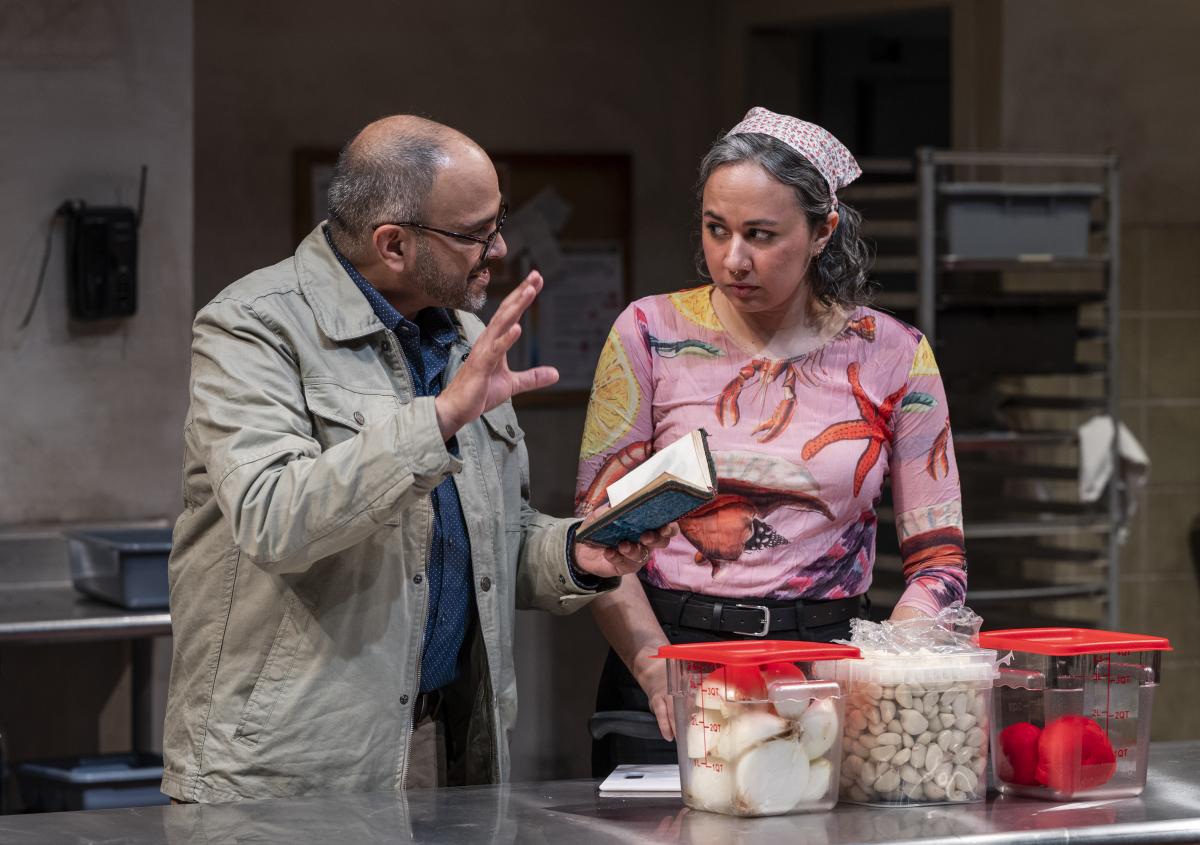
Adil is even amazed by Rita’s transformation of something as simple as vanilla ice cream topped with a bottled sauce and pepper – heaping praise on her for proving her powerful creativity that can turn even plain vanilla ice cream into an exotic taste sensation.
But Neeraj remains stubbornly unimpressed and unmoved. Neeraj knows the restaurant’s longtime popularity has diminished and needs a fresh approach to attract customers back, after three decades of success now waning. Even its name, Dhaba Canteen, once a fond, evocative reminder of the plain roadside diners back home, now seems dated and drab compared to the evolving restaurant scene and gentrifying neighborhood.
But to him, that also means compromising or even abandoning the traditions that preserved the food -- and culture -- of the Sindhi people back before 1947, when the historic political partition divided British India into India and Pakistan, disbursing the Sindhi people from both countries. And to him, that is a betrayal he cannot accept.
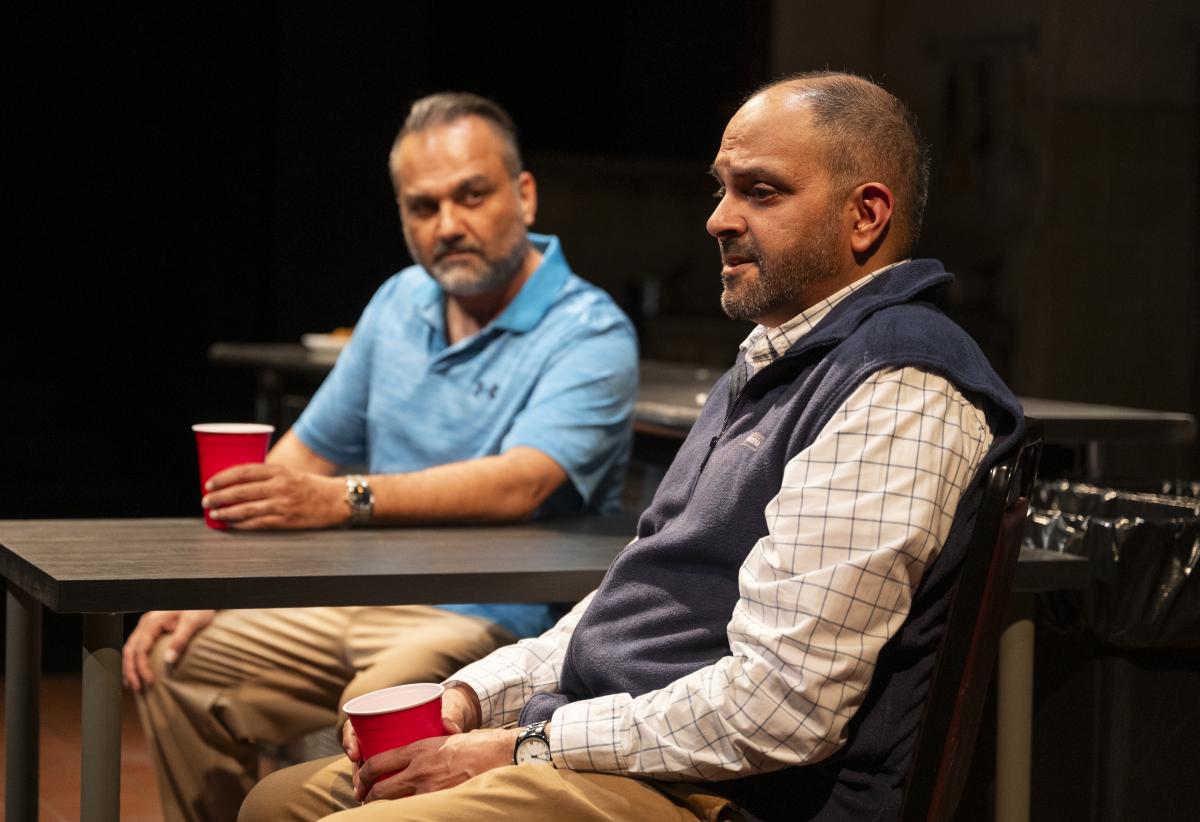
The entire 90-minute play takes place in 2017 in the restaurant’s humble kitchen, save for a brief visit by Rita toward the play’s end, to a fast-casual restaurant where her friend and former employee Luz has gone to take a new job “that has insurance and better pay.”
It is in that cozy Devon Avenue restaurant kitchen that a few of Neeraj’s secrets unexpectedly unfold, shocking his family and upending Rita’s thoughts about the restaurant and her own desires and future.
It is also the safe place where family conversations reveal each member’s hopes and dreams and disappointments: of Rita, devoted to her father and the family restaurant but suddenly pondering a future away from both; Rita’s older sister Sindhu, a successful businesswoman, married and newly pregnant, who’s come home to visit and help her dad and sister figure things out, but who is also figuring her own life out; and their uncle Adil, in business for himself in the local Chicago community, who generously volunteers to rescue the restaurant by investing in it and partnering with Nareej and Rita, offering ideas about how to preserve tradition while also progressing, that fail to inspire.
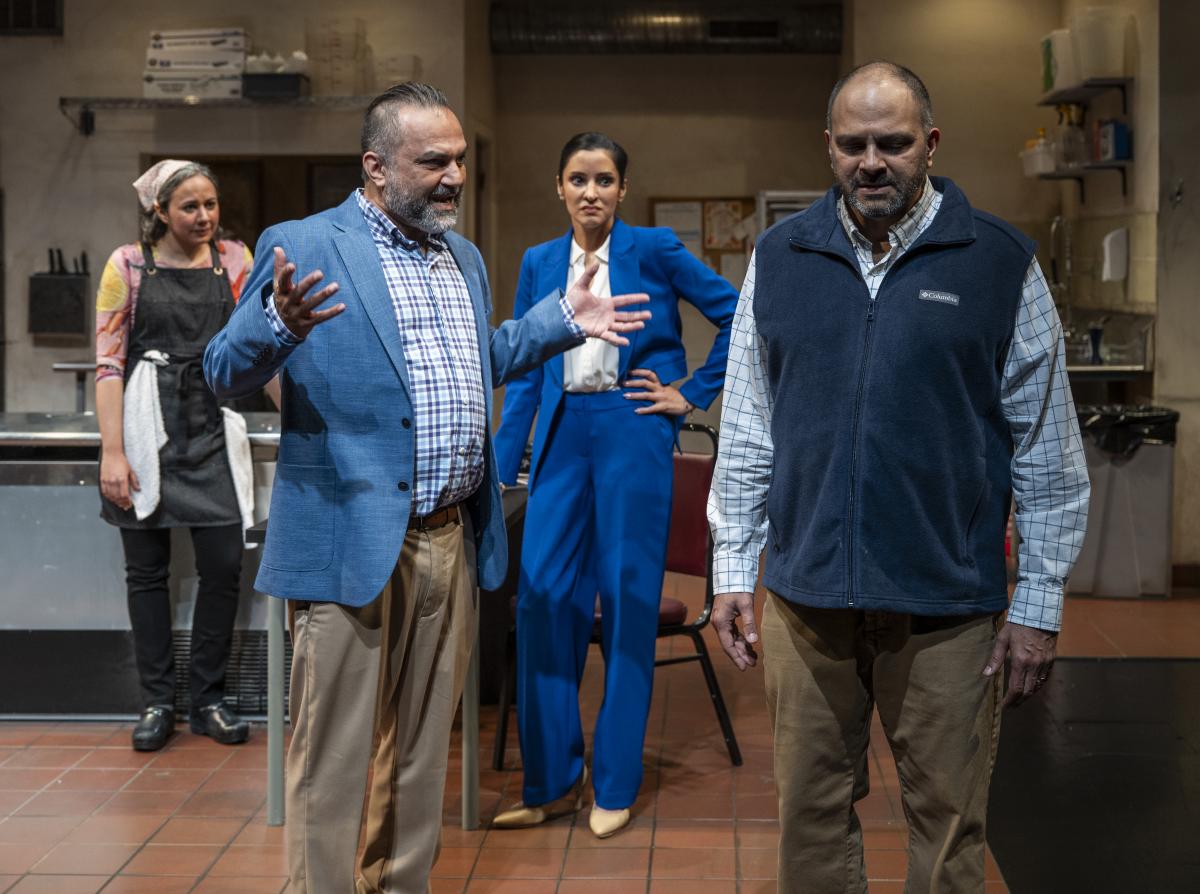
“Heritage, family, memory, legacy” Neeraj preaches, voicing the guiding principles that keep him clinging to the stagnant restaurant and the old ways, unable and unwilling to consider any change at all.
“Compromise, adjustment, solution – THAT is being Sindhi,” Adil counters. “The rest is just ego.”
It is these two concepts of cuisine and culture that comprise the heart of this wise, touching play, and which have formed each character -- competing and at odds in the mind of staunchly and proudly traditional Neeraj, but blending seamlessly, not just co-existing, in the mind of the more resilient and flexible Adil.
Likewise, Rita and Sindhu represent the next generation’s iterations of these competing concepts, with Rita suddenly finding herself questioning her professional and personal direction apart from the restaurant and her father, and giving herself space and time to consider what she really wants in both areas of her life, including a possible romance with Luz.
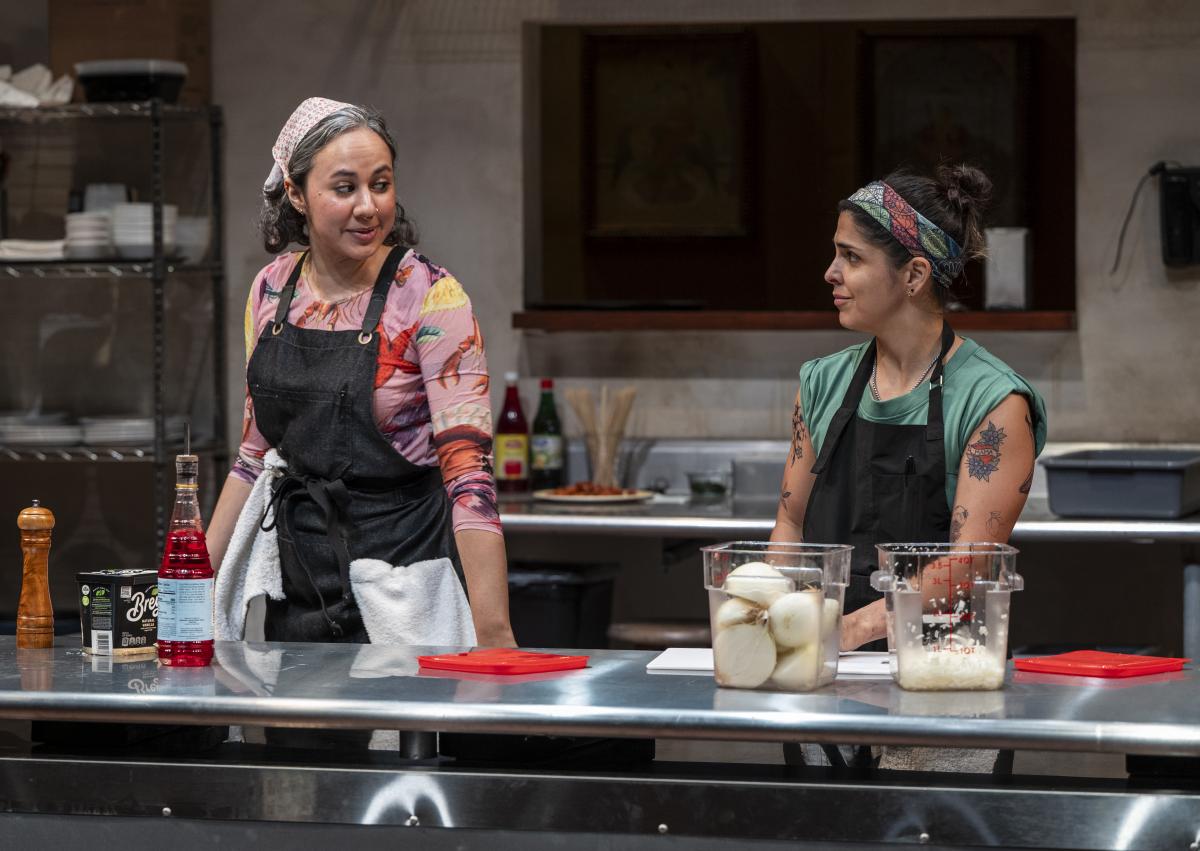
For her part, Sindhu appears to have embraced her exciting job, but admits that perhaps there’s a stultifying sameness to it that leaves her unfulfilled, while she finds great happiness with her Brazilian singer husband and seems to be the personal path – family life -- that is her greatest adventure.
Madhuri Shekar’s play is the best of its type, finding universal themes and threads in her deeply personal exploration of a specific ethnic group whose 70-year diaspora has not diminished its proud traditions and beloved recipes, both passed from generation to generation, and somehow preserving both despite the influences of the host country, and yet also embracing those influences, creating what Adil calls “an exotic fusion.”
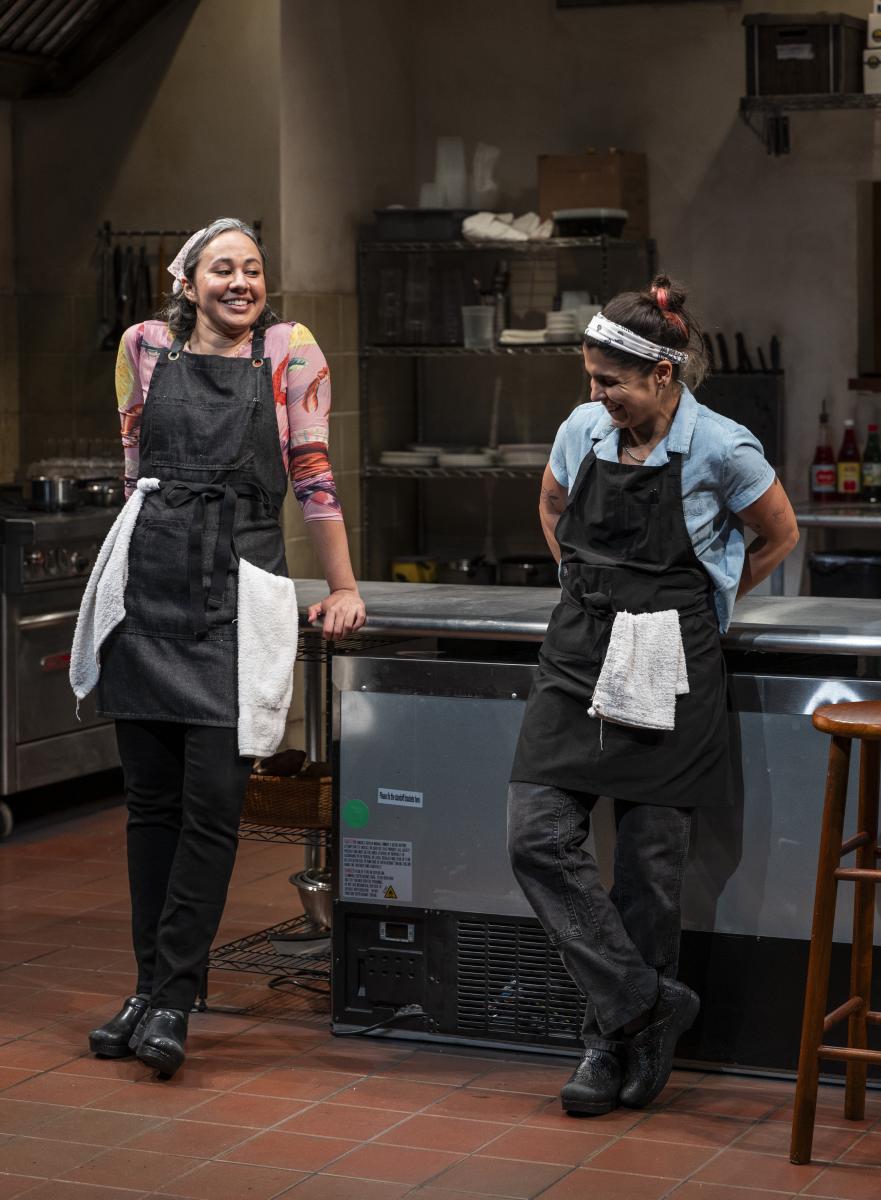 The play was originally commissioned by director Chay Yew, while he was Artistic Director of Victory Gardens Theater back in 2020, but was prevented from opening by the pandemic. It is a collaboration between Writers Theatre, whose mission is to “create intimate connections,” and TimeLine Theatre Company, in Chicago, whose mission is to explore “stories inspired by history that connect with today’s social and political issues.”
The play was originally commissioned by director Chay Yew, while he was Artistic Director of Victory Gardens Theater back in 2020, but was prevented from opening by the pandemic. It is a collaboration between Writers Theatre, whose mission is to “create intimate connections,” and TimeLine Theatre Company, in Chicago, whose mission is to explore “stories inspired by history that connect with today’s social and political issues.”
It is worthy and charming, with thought-provoking dialogue from start to finish, the characters fascinating, endearing and fully formed. Shekar’s work spans theater, television and film. Her play, “A Nice Indian Boy,” was adapted into a 2024 feature film, which critics have lauded as funny, warm and delightful. Shekar also is the 2020 winner of the Lanford Wilson Playwrighting Award, established by the estate of the late playwright and presented by the Dramatists Guild Council to a dramatist based primarily on their early-career work.
“Dhaba on Devon Avenue” runs through July 27, 2025.
Performances: Wednesdays: 3 p.m. (July 2 and 16 only) and 7:30 p.m.; Thursdays: 7:30 p.m.; Saturdays: 3 p.m. and 7:30 p.m.; Sundays: 2 p.m. and 6 p.m. (July 13 only)
Alexandra C. and John D. Nichols Theater, 325 Tudor Court, Glencoe, IL
Prices: $35 to $95; Box office is located at 324 Tudor Court, Glencoe; 847-242-6000
